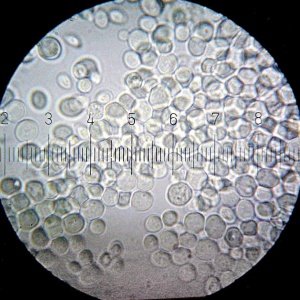
A new paper has estimated the economic and environmental potential of feeding livestock with industrially-fermented microbes such as bacteria, yeast, fungi and algae instead of crop-based feed. The study finds that microbial protein could replace 10-19% of crop-based animal feed protein, with decreases in land use, climate impact and nitrogen pollution.
The technologies covered in the study produce microbial protein from sugar cane, hydrogen from renewably-powered water electrolysis, natural gas, biogas, or syngas from gasification of biomass such as Miscanthus.
The authors emphasise that microbial protein feed will not be enough on its own to reduce land use pressures, and that other solutions may be necessary as well, such as better manure management, dietary changes, use of edible insects, or feeding livestock on waste biomass streams.
Abstract
One of the main challenges for the 21st century is to balance the increasing demand for high-quality proteins while mitigating environmental impacts. In particular, cropland-based production of protein-rich animal feed for livestock rearing results in large-scale agricultural land-expansion, nitrogen pollution, and greenhouse gas emissions. Here we propose and analyze the long-term potential of alternative animal feed supply routes based on industrial production of microbial proteins (MP). Our analysis reveals that by 2050, MP can replace, depending on socio-economic development and MP production pathways, between 10–19% of conventional crop-based animal feed protein demand. As a result, global cropland area, global nitrogen losses from croplands and agricultural greenhouse gas emissions can be decreased by 6% (0–13%), 8% (−3–8%), and 7% (−6–9%), respectively. Interestingly, the technology to industrially produce MP at competitive costs is directly accessible for implementation and has the potential to cause a major structural change in the agro-food system.
Reference
Pikaar, I., Matassa, S., Bodirsky, B.L., Weindl, I., Humpenöder, F., Rabaey, K., Boon, N., Bruschi, M., Yuan, Z., van Zanten, H. and Herrero, M., 2018. Decoupling Livestock from Land Use through Industrial Feed Production Pathways. Environmental Science & Technology. 52, pp.7351-7359.
Read the full paper here. See also the Foodsource resource How far could changes in production practices reduce GHG emissions?







Post a new comment »